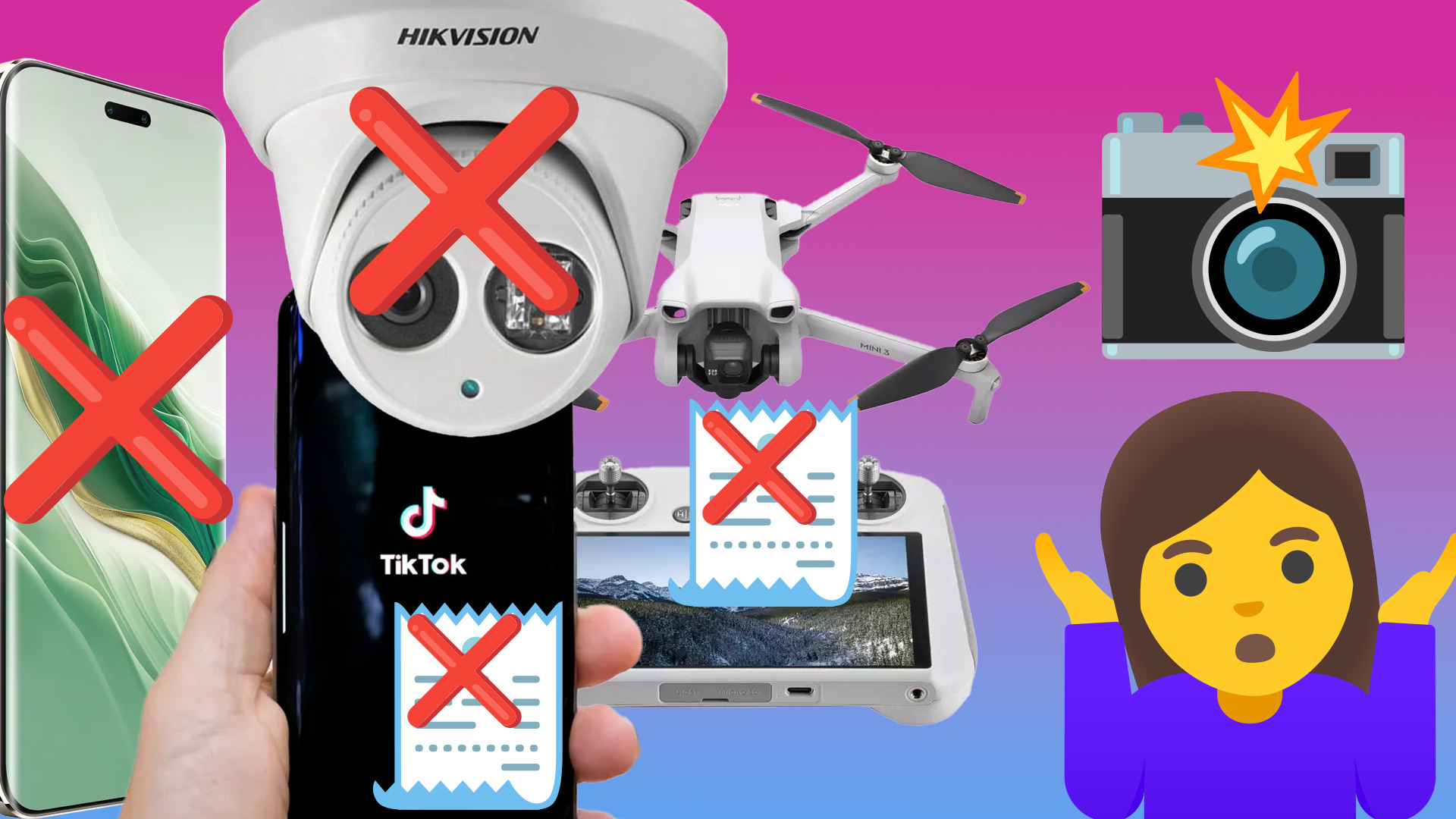
After a generation in which reasonably free global trade has meant access to products from anywhere, competition, and (relatively) accessible prices, things seem to be changing. Photographers without drones might be sitting back unconcerned, but things could be a lot more worrying.
Last week, I interviewed DJI's Head of Global Policy Adam Welsh and he couldn't tell me for sure whether the proposed ban on the company's products working its way through Congress would affect the company's cameras or not.
DJI don't know, because the law is so vaguely worded, and that's not a great state of affairs for anyone who likes cameras.

DJI drones and cameras are manufactured in China for a Chinese-owned company, but it's far from the only technology area to have been targeted in America, and the government seems to be getting quicker at getting bans through. Previous victims include Hikvision (security cameras) and Huawei (phones and tech), so we know it can happen, and seems to be doing so more often.
TikTok has been banned already, by the Taliban in Afghanistan, and India. There are also restrictions on use in Australia, EU states, and the USA on having the app on phones used by government officials, but the law proposed in the USA is more like the Taliban one.
Ironically the ban on TikTok – which amounts to forcing the owners to sell it – actually somewhat depends on help of the Apple App Store and Google Play stores to close off access – ironic because this monopoly is itself the subject of various anti-trust disputes in countries including the USA.
What we do know is that (if the rule doesn't get changed by the Senate before the bill is passed), new DJI "surveillance devices" will be banned. Personally I'd say that phrase can describe a camera, like DJI's excellent Osmo Action 4 which tops our guide of best action cameras, and as a camera consumer, I personally would much rather see companies like GoPro have to work for my custom by producing better products rather than having their lawyers sweep competitors out of the stores.
The real worry, though, is where this ends (assuming it does). Because what is happening now is incremental, but we all know how much of our equipment comes from China one way or another.
While the context is clearly different, Pastor Martin Niemöller's famous poem 'First They Came' hints at the chipping away of various companies and communities which faces us as camera consumers. Each supplier seems reasonably happy to lose a competitor – indeed it might be lobbying for it – but there is an overall momentum which might be harder to stop.
If the protectionist voices – largely but not exclusively Republican – in the US government are successful in stopping DJI from selling into America, as they have been with Hikvision and Huawei, is your next camera at risk?
Canon has more or less seen this risk off at the pass, bringing manufacturing back home to Japan. Nikon stopped their small camera manufacturing in China back in 2017, but that had more to do with the success of phones than a desire to leave China at the time.
Sony, recognising the growth of China as a market, retained its Chinese manufacturing facility but transferred production of products for the US and Europe to Thailand according to Nikkei Aisa.
Other companies like Insta360 – dominating the rapidly growing new camera tech, 360-degree cameras, and Chinese – might have a little more to worry about though, but we've not heard anything yet.
So – in short – you should be able to buy your next camera so long as the American bans are motivated at least in part by political control (DJI & TikTok are 'Chinese') and not the place the components are manufactured, but – because no one is taking any chances – it'll almost certainly be adding to the cost of every camera already.
It doesn't look like the DJI ban will be retroactive, even if it does happen, so check the best camera drones available now and feel safe as you do, but if you really want to look for other options we have a best non-DJI drones guide too!







